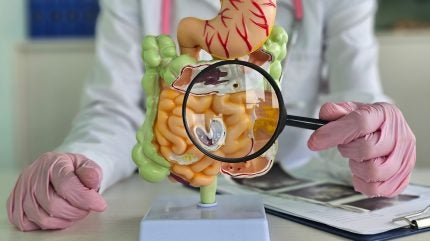
The Canadian Intellectual Property Office (CIPO) has awarded Palisade Bio a patent for its ileocolonic-targeted Phosphodiesterase 4, subtype B/D (PDE4 B/D) inhibitor, PALI-2108.
Patent number 3,174,137, which is titled Gut Microbiota Bioactivated PDE4 Inhibitor Precursors, encompasses the composition of this oral medication aimed at treating ulcerative colitis (UC) and fibrostenotic Crohn’s disease (FSCD).

Discover B2B Marketing That Performs
Combine business intelligence and editorial excellence to reach engaged professionals across 36 leading media platforms.
The protection granted by the patent extends to 28 May 2041, covering the composition of the therapy.
The prodrug’s design incorporates a sugar moiety derived from galactose that enables minimal absorption before being activated by the colonic bacterium enzyme β-glucuronidase.
The process is designed to facilitate colon-specific distribution, as shown in a tissue distribution study, while limiting systemic absorption.
The company plans to initiate subject dosing in a Phase Ib FSCD trial of the therapy in the latter half of 2025, with topline data anticipated in the first quarter of 2026.

US Tariffs are shifting - will you react or anticipate?
Don’t let policy changes catch you off guard. Stay proactive with real-time data and expert analysis.
By GlobalDataThis forthcoming data, in conjunction with results from earlier Phase Ia/Ib studies for UC, will underpin Palisade Bio’s planned submission of a Phase II investigational new drug application to the US Food and Drug Administration (FDA) in the first half of 2026.
Palisade Bio CEO J D Finley stated: “We remain committed to strengthening the intellectual property portfolio around PALI-2108 and are focused on advancing the development of this programme.
“The granting of this patent marks an important addition to our global IP portfolio estate. Our team continues to execute on our clinical milestones, and we look forward to pursuing the full therapeutic promise of PALI-2108 to treat patients with FSCD and UC.”
PALI-2108 is activated within the lower intestine by bacterial enzymes to inhibit PDE4 B/D in the terminal ileum and colon.
This selective activation concentrates the drug in the local tissue, maximising its therapeutic effects while minimising systemic exposure.




